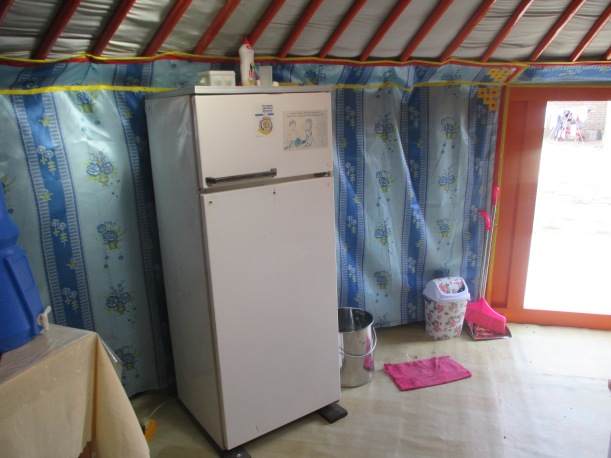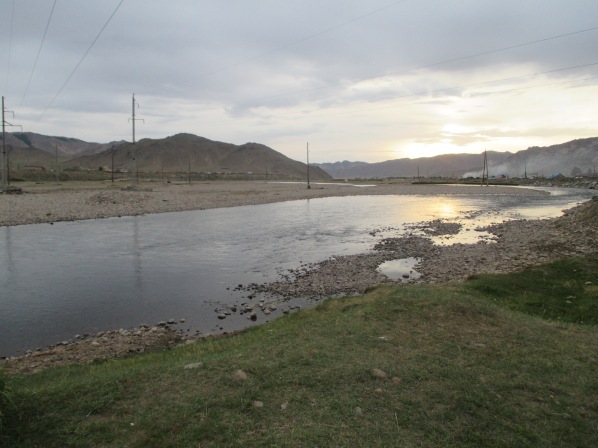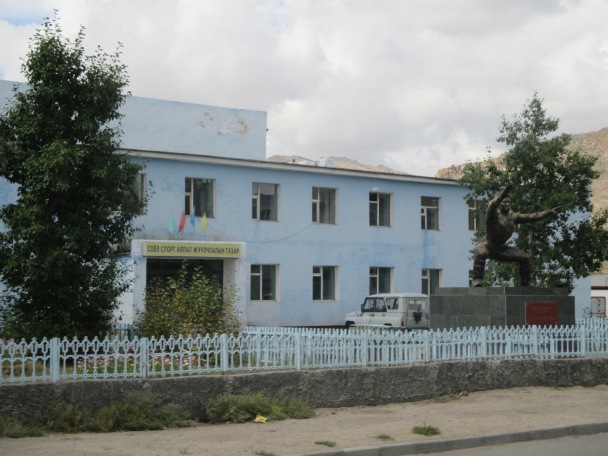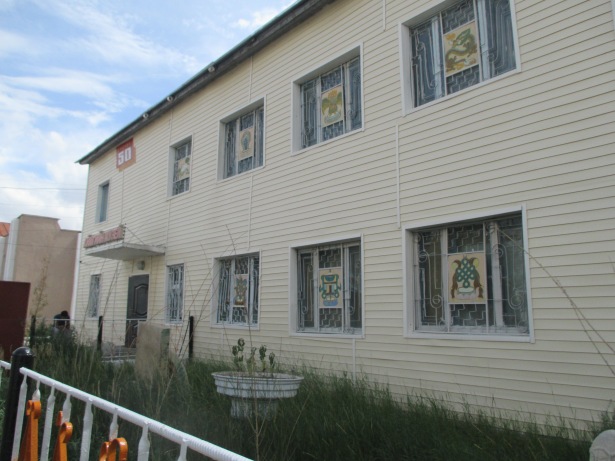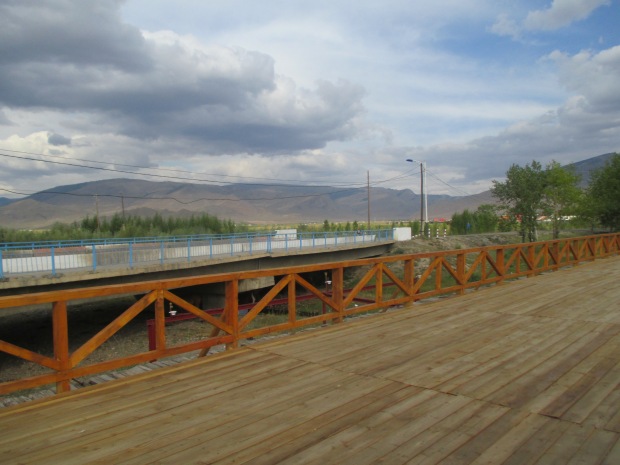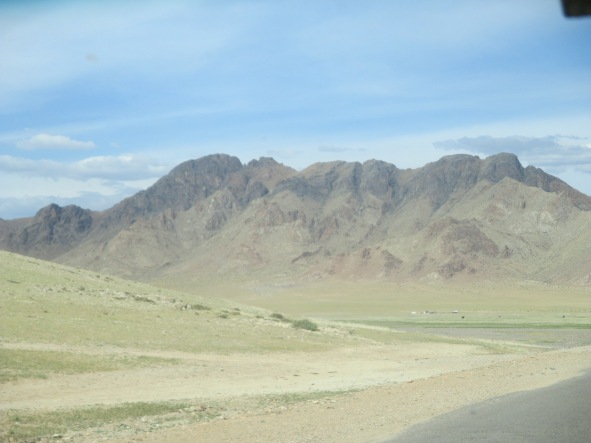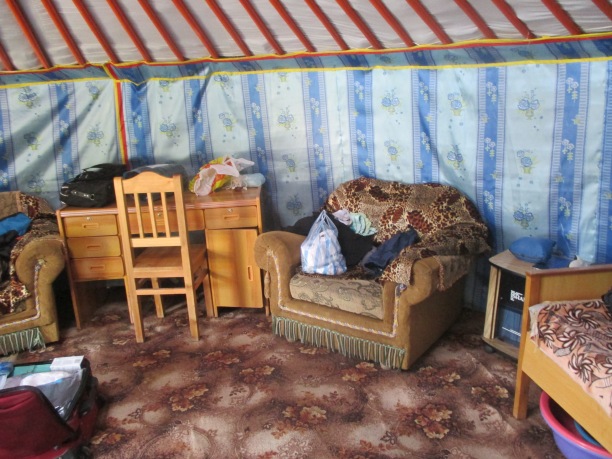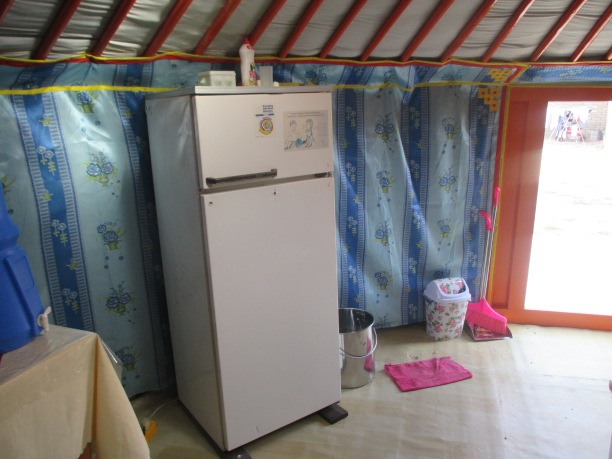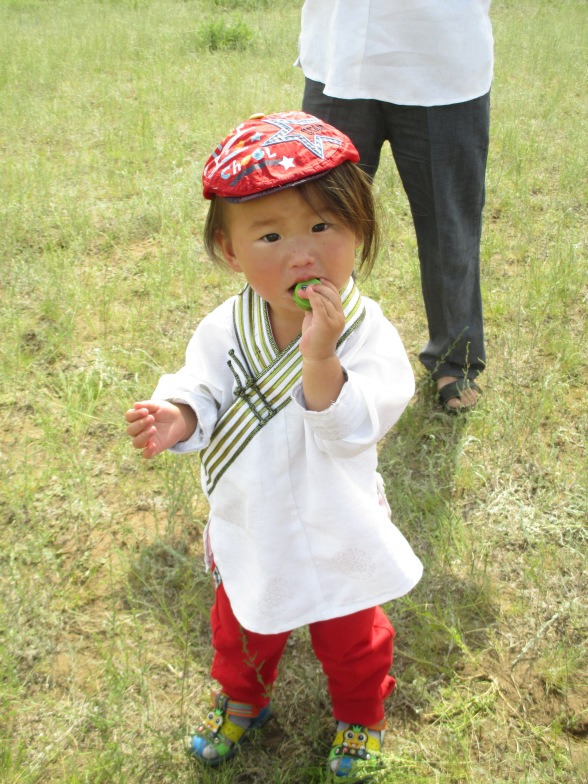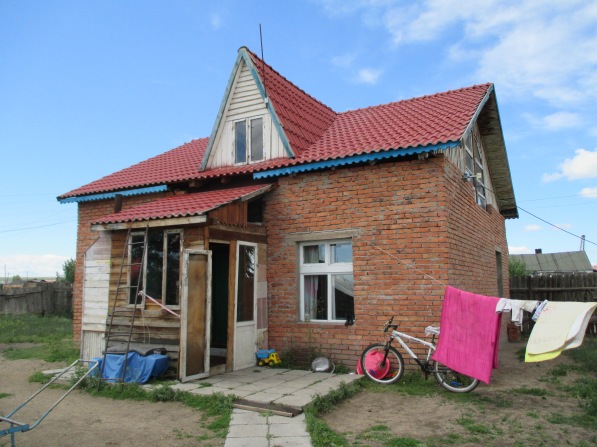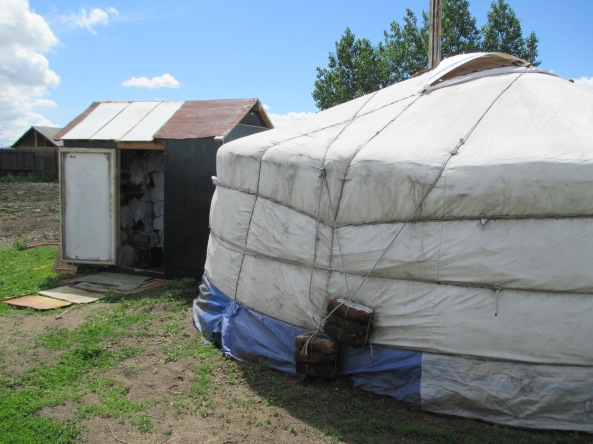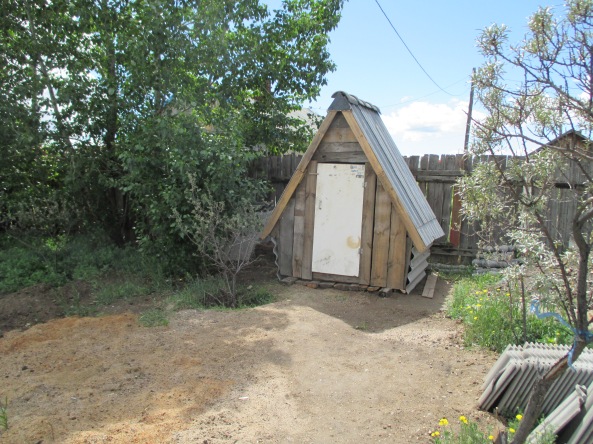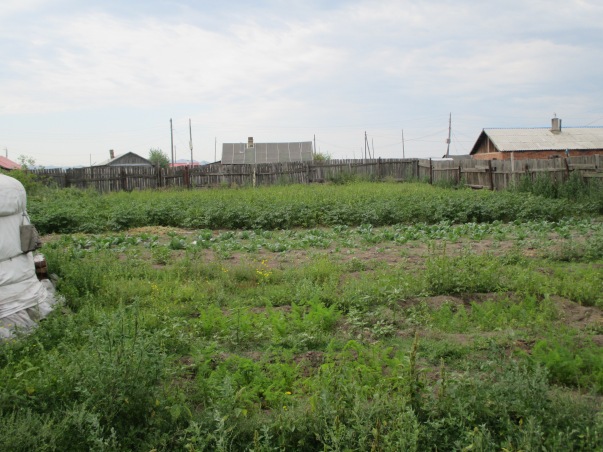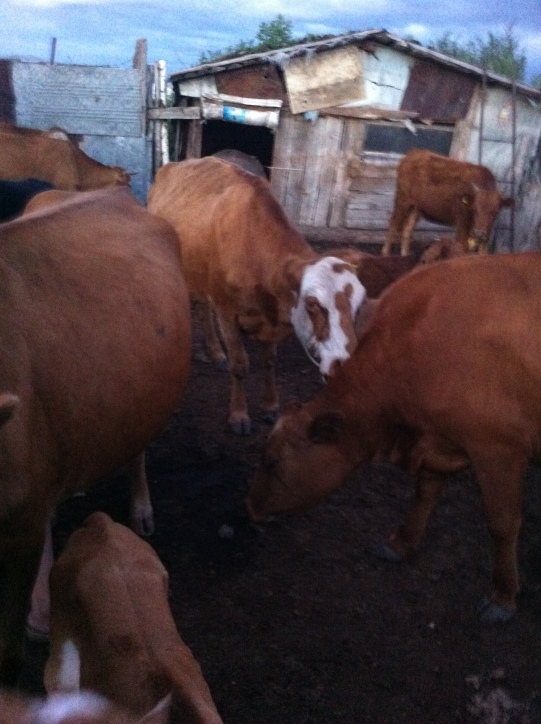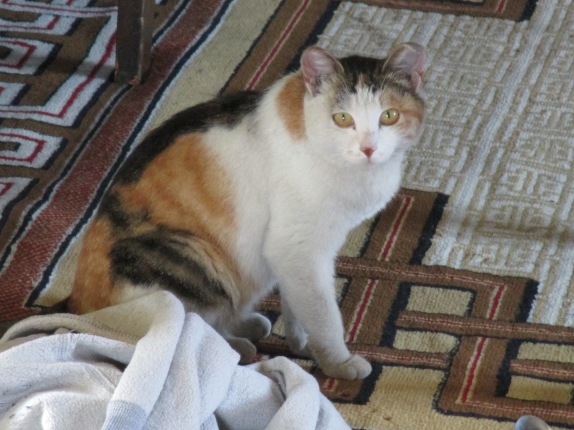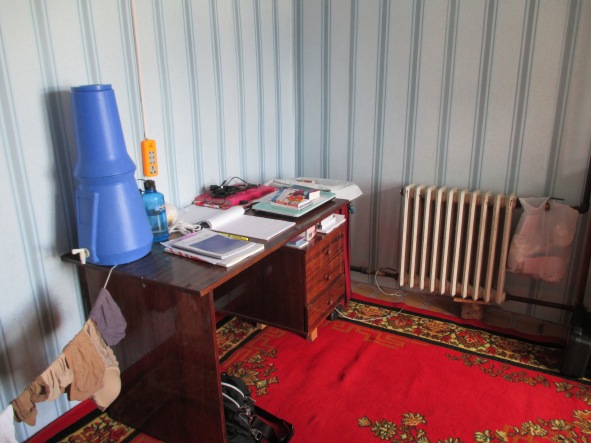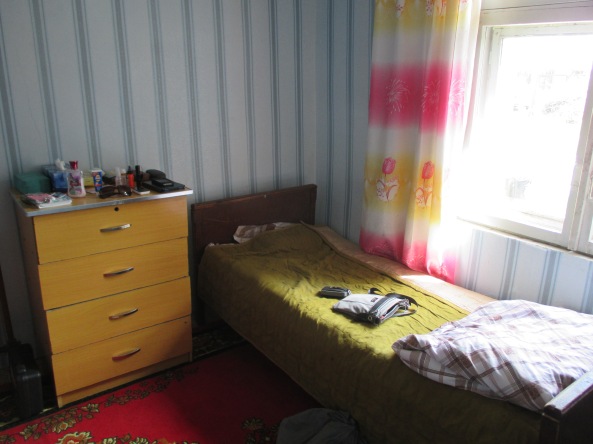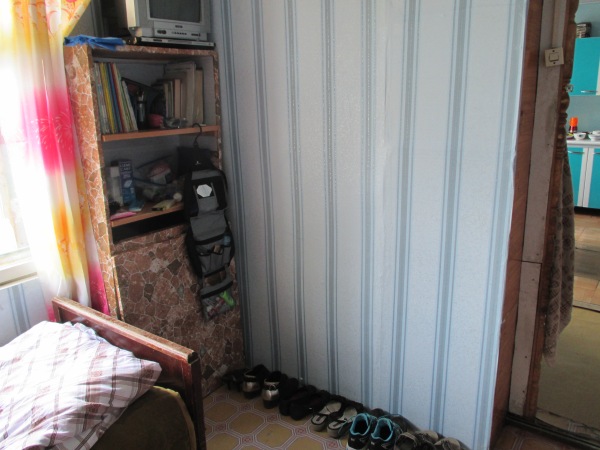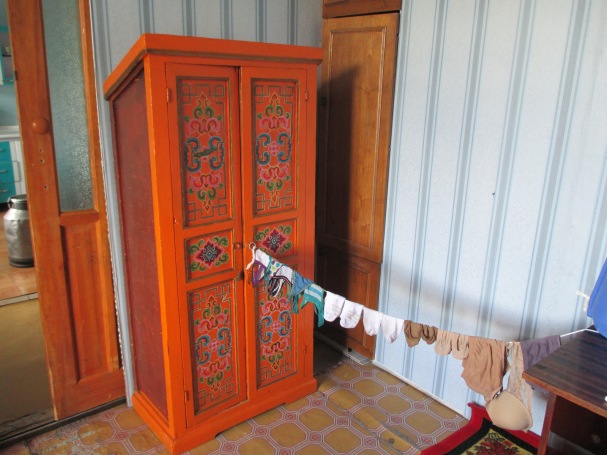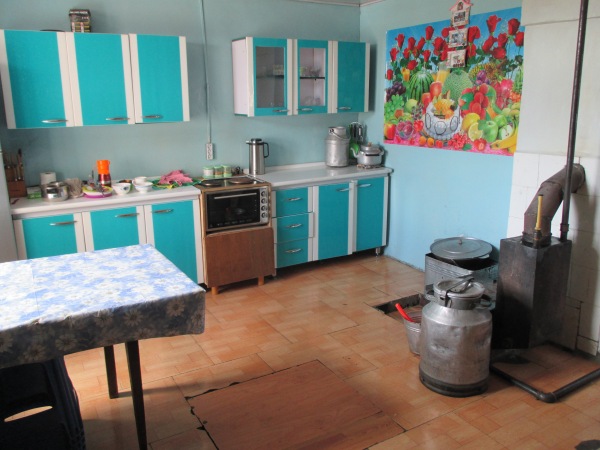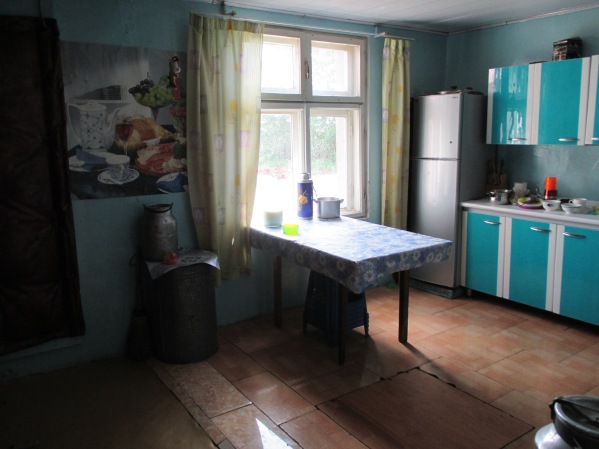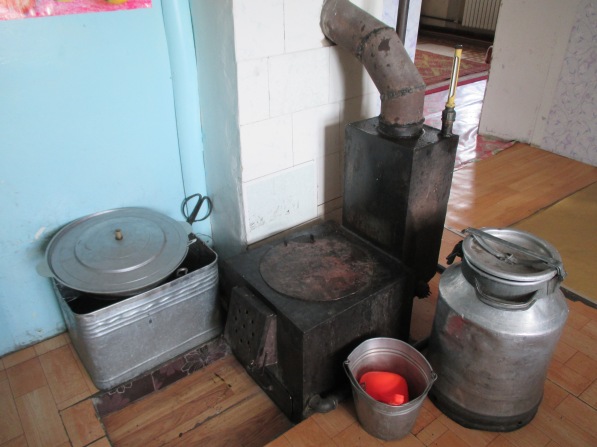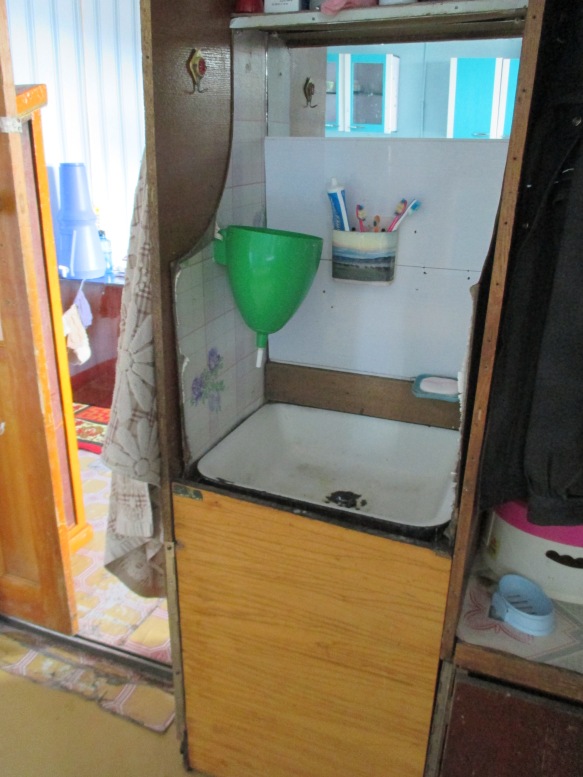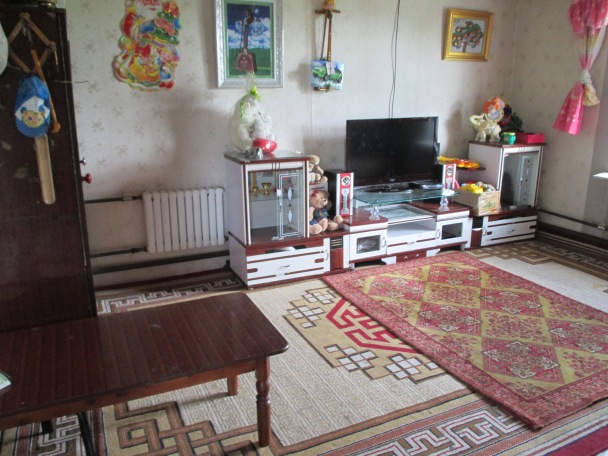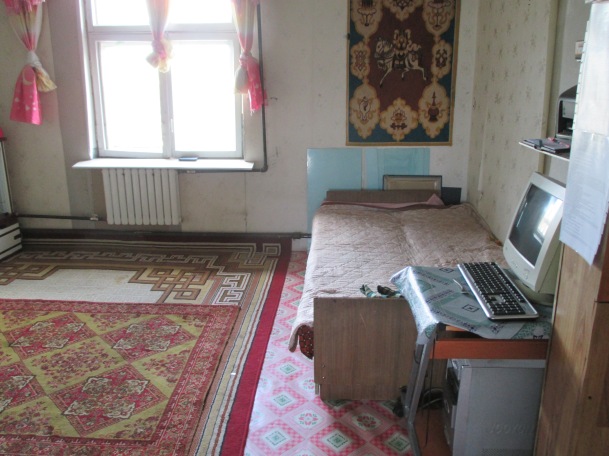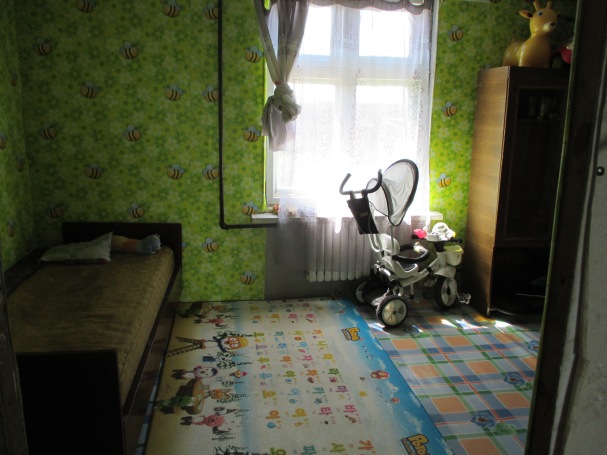My first Thursday in Uliastai was quite interesting. On Monday I had noticed that my fridge had stopped working (yes, the day after I moved in).
Luckily I hadn’t put much in it yet, because the next day when the electrician came to fix it, he determined that the motor was broken and would need to be replaced. So on Thursday morning I was told to go back to my ger during lunchtime so that the electrician could fix my fridge—except the power was out (we’ve been having a lot of power outages–supposedly because they’re busy working on the electrical system in town to improve it), so he couldn’t fix it then. So I went back to the health department, where I got to sit in on a 4-hour seminar for doctors in soums throughout Zavkhan. I couldn’t understand most of what was being said, but it was still interesting.
That evening, I received a text message from my supervisor asking if she could come to my ger. I said “sure” because that’s the Mongolian thing to do (actually, stopping by unannounced is the even more Mongolian thing to do, but thankfully she at least gave me some warning). So she stopped by to give me some cleaning supplies (I guess she thinks my ger is a pigsty) and Mongolian yogurt. Then she spent almost an hour scrutinizing my ger (apparently I didn’t hang my hadag in the correct place; why am I sleeping in a sleeping bag? etc.), asking if I needed anything else (why don’t I have more food? Do I have winter boots? Was I able to steal my neighbor’s wifi?), and telling me what she wanted me to work on at the health department the next day.
Then, upon discovering that my water containers were close to empty, she told me how to get more. There’s a well in our hashaa that I had already gotten water from, but I was told that water was just for cleaning laundry. To get water for drinking, cooking, etc., we had to go to a small river right outside town. So my supervisor told my hashaa dad that I needed water, and we headed off. With my supervisor translating, my hashaa dad told me that I was not allowed to go get water alone because it was dangerous (he thinks the stray dogs will eat me, but I see several times more dogs just walking to the health department each day than I did walking to the river). If I ever needed water, I was just supposed to let him know, and he would go get it for me. He also told me to feel free to come to their home and watch TV, learn Mongolian, etc. whenever I wanted.
After our water-fetching adventure, my supervisor and I went back into my ger to talk some more. I was starving by this point as I hadn’t eaten dinner, and just as I was hoping my supervisor would head home soon (I love her and all, but I need to eat! I wouldn’t even have minded cooking dinner for both of us, except she had already eaten before coming over), the electrician and his wife came in. It was almost 9pm, but he was determined to fix my fridge, dammit! While he got started on the fridge, my supervisor hinted that I should offer the electrician’s wife a seat and that I should offer them all candy (in Mongolia, you absolutely must have a bowl of candy always at the ready for when guests drop by, and luckily they had already prepared me one when I moved in). After we determined that my hosting skills are abhorrent (sorry, I’m not actually Mongolian so I don’t have the whole hospitality thing ingrained into every fiber of my being), we sat around for what felt like forever watching the electrician fix my fridge (the motor had to be replaced, so it took a while). My hashaa mom and dad also stopped in, and as time went on, I seriously considered just eating my dinner in front of everyone; I didn’t have enough for the 5 unexpected guests sitting around my ger, but I was starving.
But before I could do anything about my hunger, our attention turned to how freakin’ cold it was in my ger. I had offered to start a fire in my stove earlier, but I was told not to as the electrician would have to move all of his work tools. But as it got colder by the minute, we all agreed that a fire was necessary. Yes, it was August, but it had been rainy and windy all day so it was colder than normal that evening (and, y’know, it’s Mongolia). And my ger isn’t very well insulated yet (they “winterize” the gers usually by October, meaning they add more layers of felt and weatherproof tarps, pile sand up against the outside walls, insulate the door, etc.). So we started a fire and huddled around the stove while the electrician finished up.
Everyone finally left around 10:30, and I immediately shoveled in some food. I had planned to spend the evening writing new blog posts, so I wrote out a few paragraphs before calling it a night.
And then, as the title of this post probably tipped you off, the fridge proceeded to break again two days later! I think the health department gave up on that fridge, because they had their accountant (who was on vacation in UB) pick up a brand new fridge for me. So a few days later the health department’s watchman and driver came with me to my ger to get rid of the old fridge and install the new one. Yay! Brand new fridge! How could this possibly go wrong?
You know how! This brand new fridge also proceeded to break just a couple days after it was installed! By this point I figured there was some issue with the electrical wiring in my ger and maybe random power surges were frying the fridges’ motors. Both fridges had been plugged into an extension cord that was already in my ger (not the one Peace Corps gave me), so my guess is that it didn’t have a surge protector. So after trying to revive it a couple times, they dragged that fridge away too. They said they will try to get it fixed, but so far I still have no fridge. I guess this is what I get for going on about how posh my ger is.

